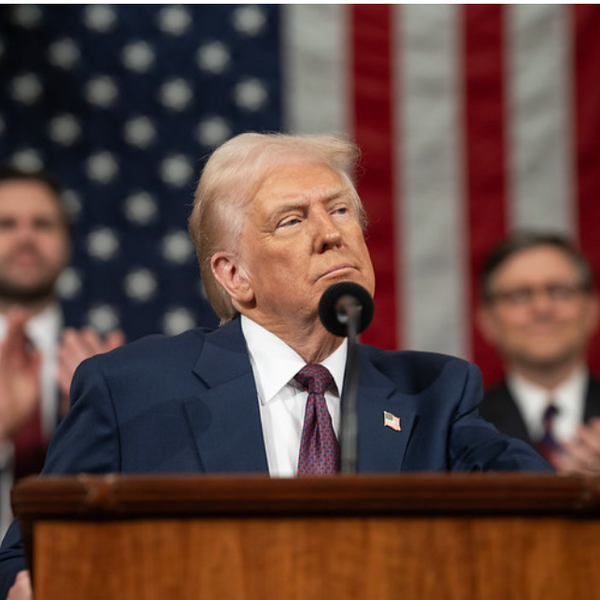How To Make A Political Platform Progressive
An old cowboy aphorism offers this advice: “Speak the truth. But ride a fast horse.”
I relived this truism last weekend in Orlando, Florida, where I spent two hot, muggy days wrangling over policy issues as one of the members of the Democratic Party’s national platform committee. Depending on the moment and the issue, the experience was both invigorating and infuriating, with refreshing outbreaks of broad and bold democratic vision, interspersed with too many rigid, Tammany Hall tactics used to dictate corporate-friendly policies. Bernie Sanders’ 40-percent minority of platform members (of which I was one) managed to “Bern” the platform with more than two dozen big and very important amendments. As a result, instead of the same old business-as-usual blah-blah of party platforms, Democrats and their nominee, Hillary Clinton, are now on public record in support of the most progressive policy agenda in decades.
More about those specific policies in a moment, but first, let’s get on that horse.
The worst development at the Orlando meeting was the Clinton campaign’s acquiescence to the wet dream of global corporate powers: The Trans-Pacific Partnership. The platform’s draft language on this horrendous TPP trade scam actually seemed to endorse it! So Sanders’ forces went all out to replace such a pusillanimous surrender with an amendment to flat-out kill TPP.
I sponsored the Sanders alternative, dubbing it “a form of political Viagra to stiffen the spine of our party.” Our amendment prompted panicky parliamentary manipulations by Clintonites to doctor their language so it would be a bit less wimpy — and also to block my amendment from even being considered. But Sanders’ savvy policy staff outflanked them, so we forced them to debate and vote on our proposal — in view of C-SPAN’s national TV audience.
Of course, with their controlling percentage of committee members (plus strict orders from their campaign’s command center that all Clinton members must vote “no”), we lost the vote 104-71.
Nonetheless, against all odds, we advanced the progressive cause by forcing the corporate interests into public view, getting four out of every 10 members to vote for killing TPP, and energizing our base to carry this hot issue directly to grassroots voters this fall and beyond. Sometimes, progress comes from a stubborn determination to stand on principle.
Sam Rayburn, a longtime speaker of the U.S. House who hailed from my home district in Texas, once declared: “Every now and then a politician ought to do something just because it’s right.”
As a member of the Democratic Party’s platform committee, I saw many examples of that adage at work in the committee’s recent meeting to hammer out an agenda to take to the people in this year’s elections. While there were plenty of disagreements and a lot of free-floating passion ripping through the hall where center-clinging Clintonites and populist Bernie-istas tried to find common ground — there was a remarkable lack of the sort of sour, personal animosity that usually gets in the way of group progress. A myriad of policies were adopted (or rejected) that I don’t like, but — hello — consider just a few of the major progressive breakthroughs that came out of the Orlando confab:
- The creation of a nationwide jobs initiative that will hire millions of our people to rebuild and expand America’s crumbling infrastructure.
- Increasing the national minimum wage to $15 an hour.
- Breaking up too-big-to-fail Wall Street banks.
- Making public colleges tuition-free for working class families.
- Expanding Social Security.
- Making it harder for CEOs to block workers from joining unions.
- Reestablishing postal banks in our public post offices to give low-income families affordable banking and an alternative to predatory lenders.
- Encouraging new power plants to use renewable energies rather than shale gas from BigOil’s destructive fracking wells.
- Expanding community health centers to reach 25 million more uninsured families, requiring Medicare to negotiate with BigPharma to lower our drug prices, and encouraging states to provide universal health care.
- Decriminalizing marijuana, eliminating for-profit prisons and detention centers, and abolishing the death penalty.
- Eliminating SuperPacs, moving to public financing of elections, providing automatic voter registration, and making election day a national holiday.
Of course, party platforms are not actual laws and programs, but statements of principles and intent. They are important as blueprints for organizing grassroots support and as specific makers for holding elected officials accountable. Making it all happen is up to us, for progressive change always has to be pushed from the bottom up — so let’s get moving.
Photo: U.S. Senator Bernie Sanders holds up his notes while speaking about his attempts to influence the Democratic party’s platform during a speech in Albany, New York, U.S., June 24, 2016. REUTERS/Brian Snyder












